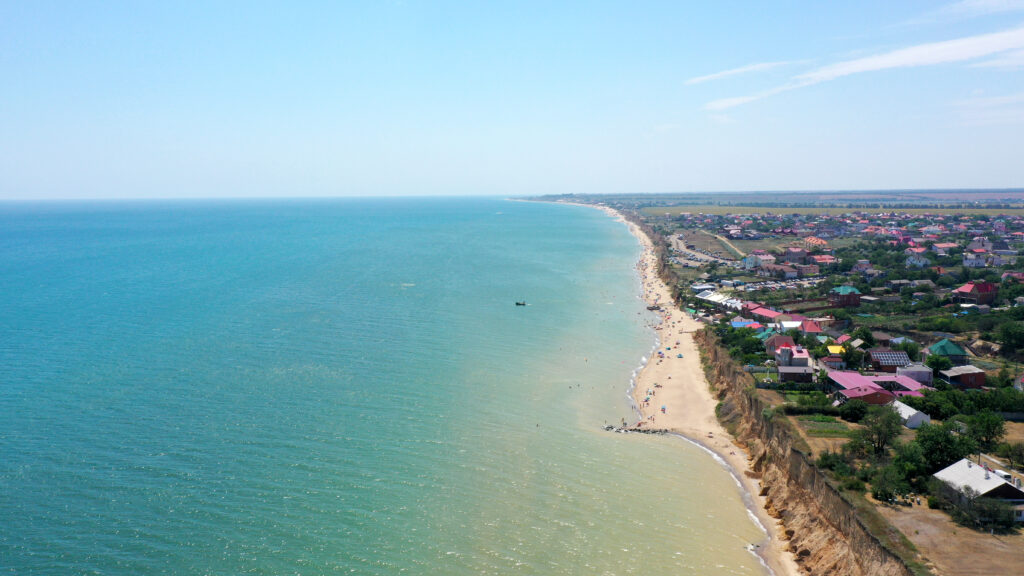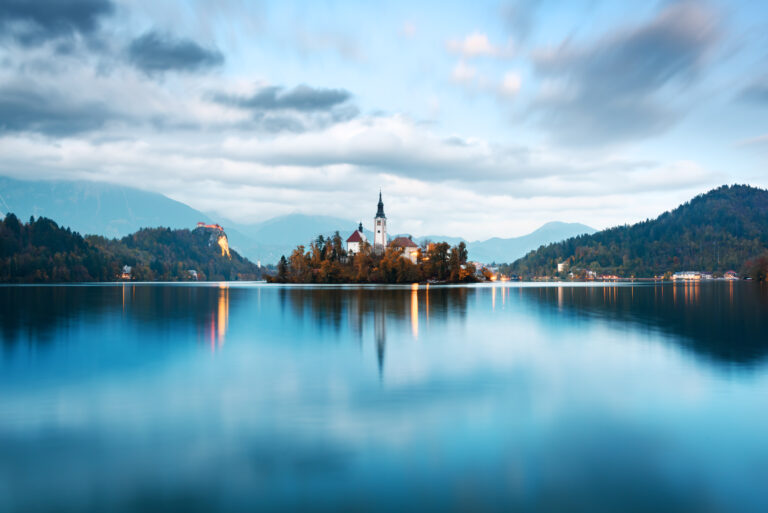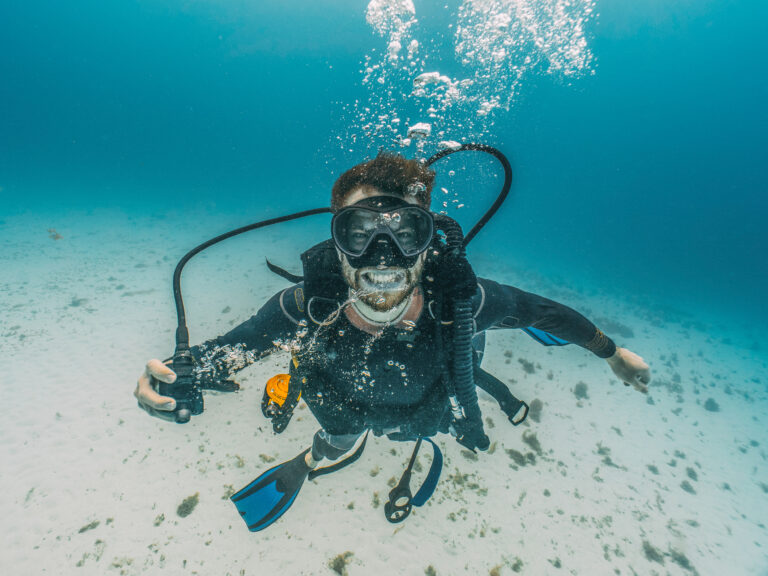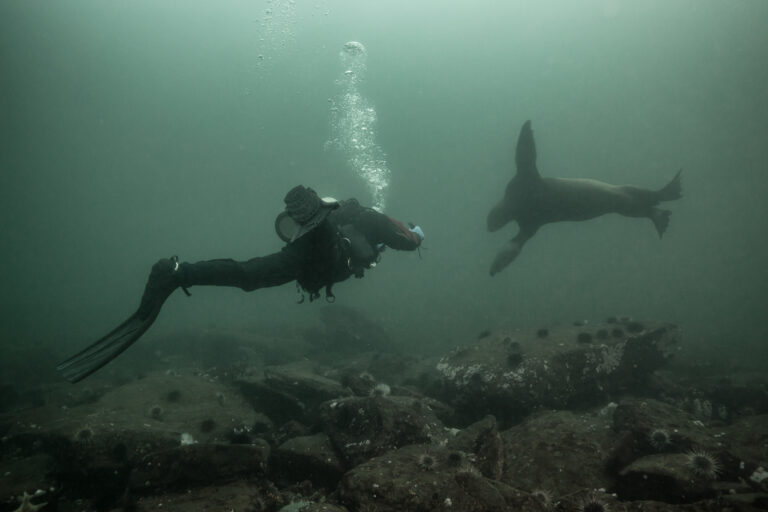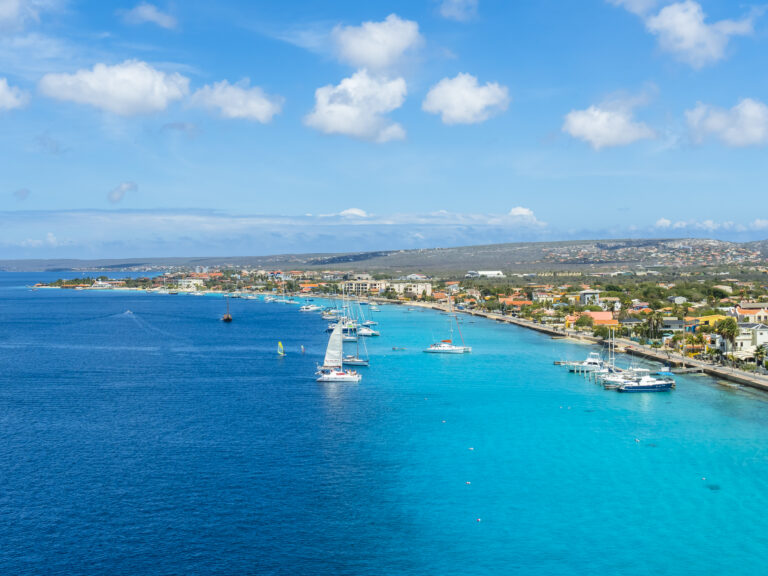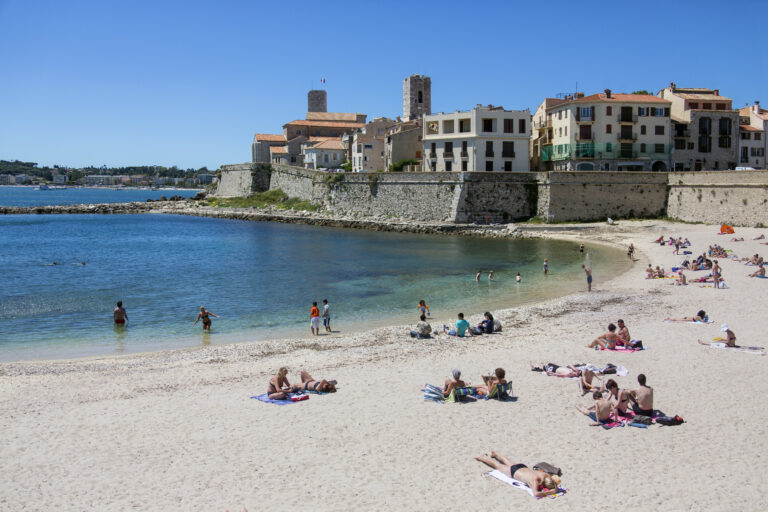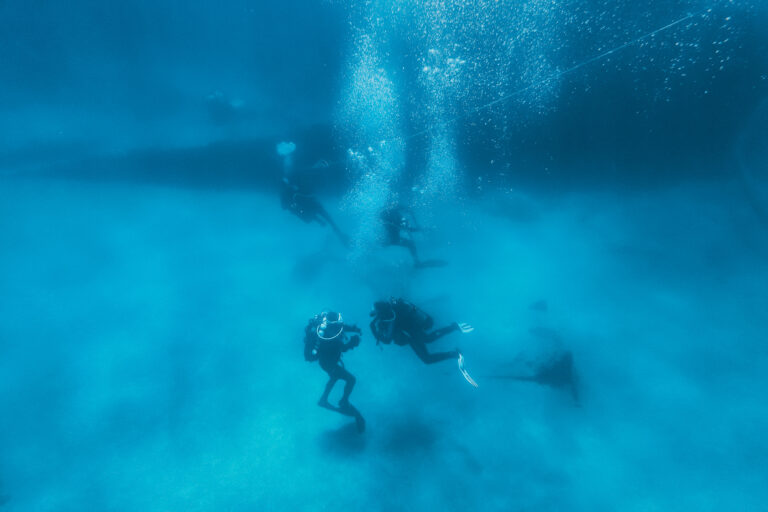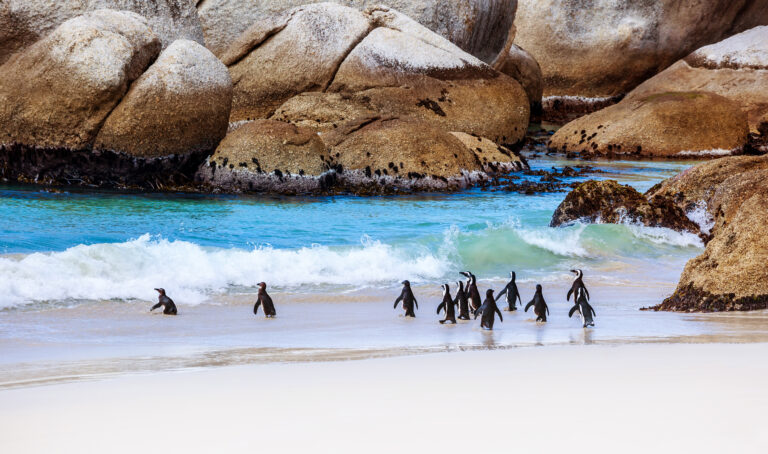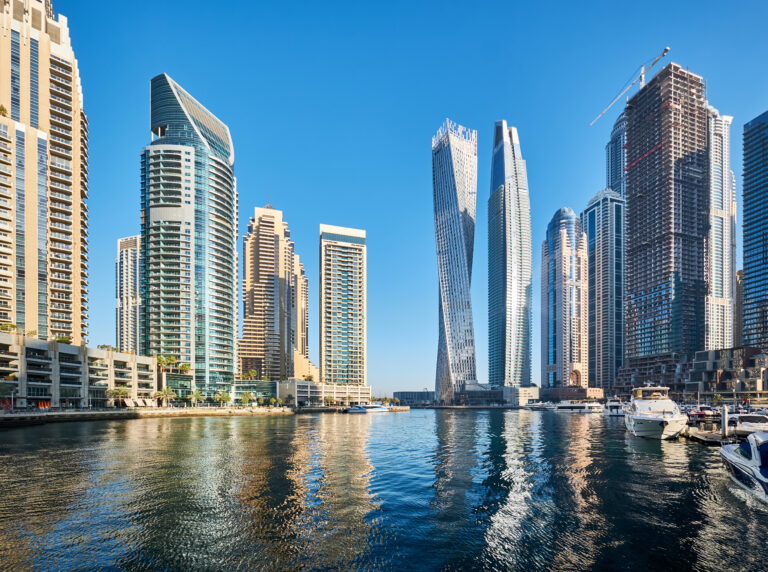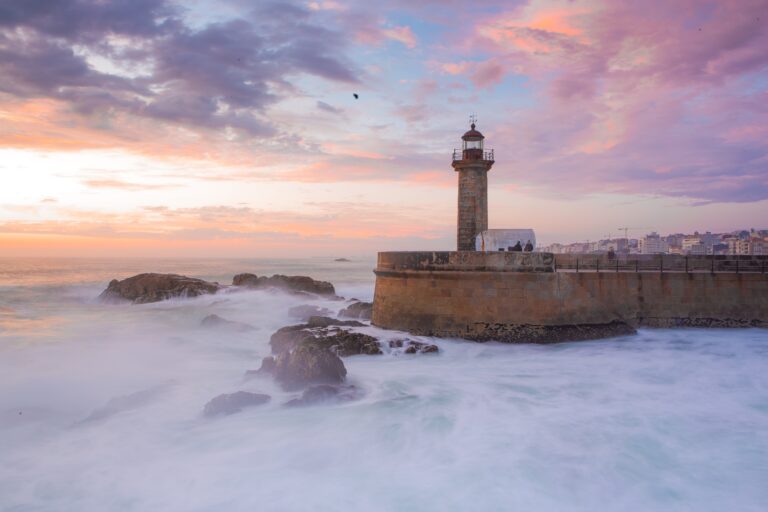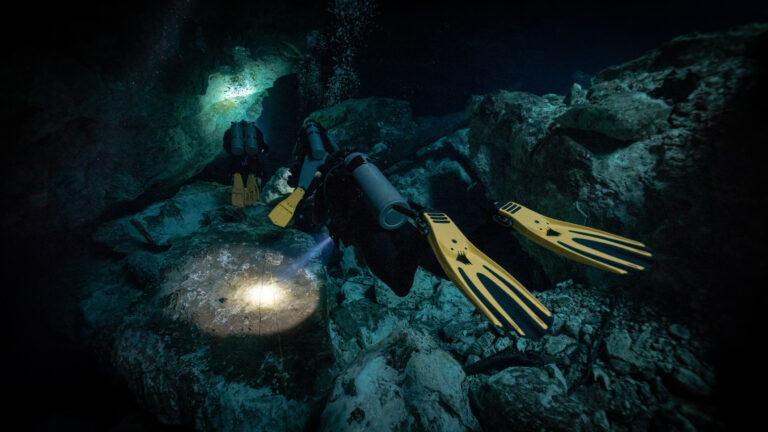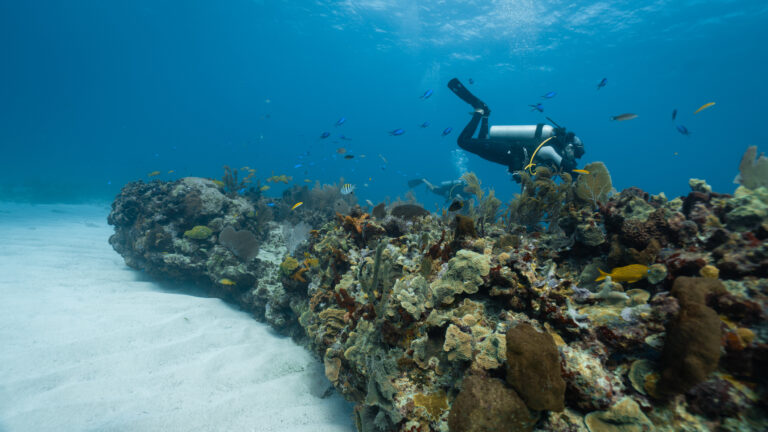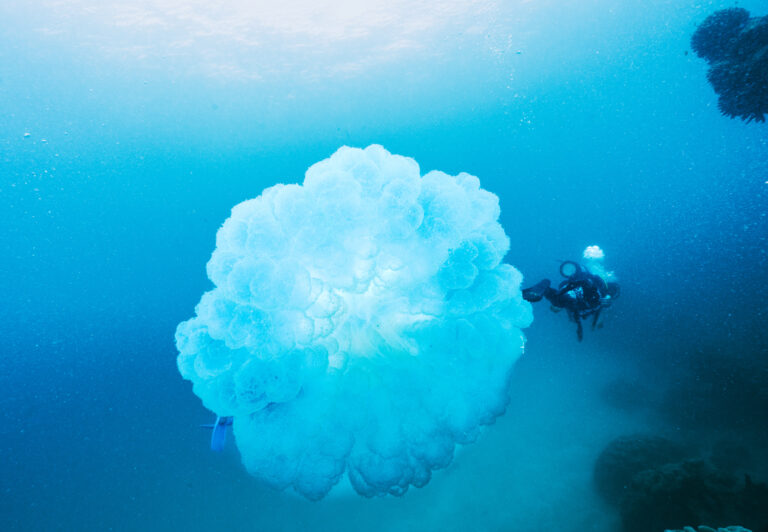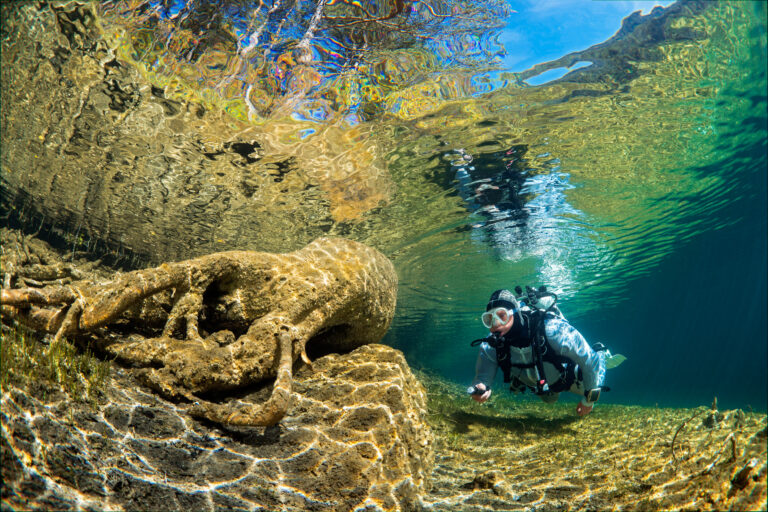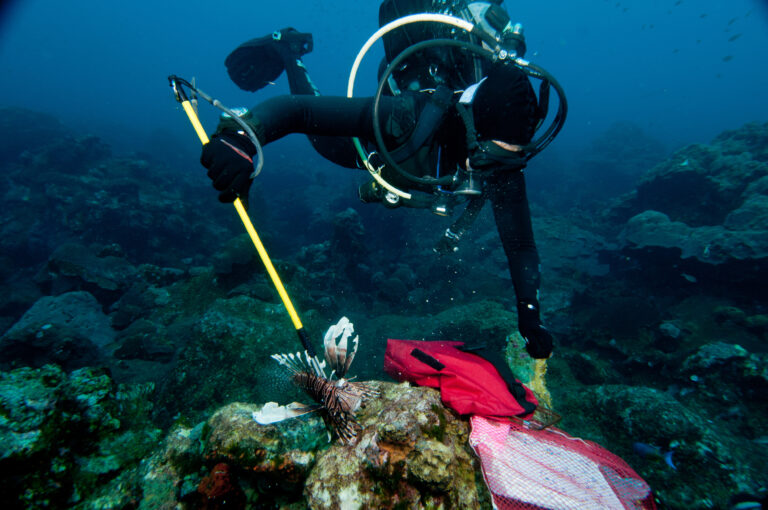SCUBA DIVERS’ TRAVEL GUIDE TO Ukraine
If you are looking for a unique and adventurous scuba diving destination, Ukraine might be the perfect choice for you. Ukraine is a country in Eastern Europe that offers diverse and stunning landscapes, rich history and culture, and plenty of underwater wonders to explore.
Ukraine has two stretches of water that are suitable for scuba diving: the Black Sea and the Sea of Azov. The Black Sea is home to many fascinating wrecks, such as the Sulina, a cargo ship that belonged to the Romanian royal family. You can also encounter crabs, rays, fish, critters, and even dolphins in the Black Sea. The Sea of Azov is shallower and warmer than the Black Sea, and has some interesting dive sites such as artificial reefs and underwater sculptures.
Besides the sea, Ukraine also has many lakes and quarries that offer scuba diving opportunities. One of the most popular diving spots is the Svityaz Lake, which is part of a national reserve and has clear water and abundant aquatic life. You can also dive in some flooded mines and caves that have a mysterious and eerie atmosphere.
Ukraine is a scuba diving destination that will surprise and delight you with its variety and beauty. Whether you are into wrecks, reefs, or freshwater diving, you will find something to suit your taste and skill level in this amazing country.
LOCATION AND GEOGRAPHY
Ukraine, nestled in Eastern Europe, may not be the first destination that springs to mind for scuba diving enthusiasts, yet it offers a unique underwater experience for those willing to explore its aquatic offerings. The country is bordered by the Black Sea to the south, which is the primary location for scuba diving adventures. The Crimean Peninsula, although under dispute, has historically been a hub for divers seeking to explore submerged ruins, shipwrecks, and a diverse marine ecosystem. Inland, Ukraine boasts numerous rivers and lakes, such as the Dnieper River and the Kiev Reservoir, which provide freshwater diving opportunities. The geography of Ukraine’s dive sites is varied, with the Black Sea featuring rocky outcrops, sandy bottoms, and seagrass beds, while inland waters offer visibility into Ukraine’s freshwater flora and fauna, as well as a chance to dive among submerged towns and relics from the Soviet era. Despite the cooler climate and the geopolitical challenges, Ukraine’s underwater terrain presents an off-the-beaten-path experience for divers in search of something different.
VISA AND ENTRY REQUIREMENTS
As of the current knowledge cutoff in 2023, Ukraine is not a traditional scuba diving destination due to its limited access to marine environments, and the ongoing conflict in the region has significantly impacted travel. However, for travelers who are considering Ukraine for freshwater diving experiences in its rivers and lakes, it is essential to be aware of the visa and entry requirements. Citizens of the European Union, the United States, Canada, Japan, and several other countries can enter Ukraine without a visa for short stays of up to 90 days within a 180-day period. For longer stays, a visa is required and can be obtained from a Ukrainian embassy or consulate prior to arrival. It is crucial to check the latest entry requirements before planning your trip, as policies may change and additional restrictions or entry conditions could be imposed, especially considering the dynamic political situation. Travelers should also register their travel plans with their respective embassies, stay updated with travel advisories, and ensure they have the necessary documentation, including proof of health insurance, for a safe and legal visit to Ukraine.
GETTING TO Ukraine
Ukraine, while not traditionally renowned for its scuba diving, offers a unique underwater experience for those willing to explore its aquatic offerings. Travelers looking to dive into Ukraine’s waters typically fly into Boryspil International Airport in Kyiv or Lviv Danylo Halytskyi International Airport, depending on their intended diving destination within the country. Overland entry is also possible from neighboring countries such as Poland, Slovakia, Hungary, Romania, and Moldova, with train and bus services connecting to major Ukrainian cities. Once in Ukraine, divers can venture to the Black Sea coast, where cities like Odessa serve as gateways to underwater adventures. Here, divers can explore submerged shipwrecks and encounter the marine life of the Black Sea. Internal travel to dive sites may require a combination of domestic flights, trains, buses, or car rentals, as the diving locations can be spread out and not always easily accessible. It’s important to check the latest travel advisories and local regulations, especially considering the fluctuating political situation, to ensure a safe and enjoyable scuba diving trip to Ukraine.
BEST TIME TO DIVE
The best time to scuba dive in Ukraine is during the warmer months, from late May through early October, when the Black Sea’s waters become more inviting. During this period, the sea temperature ranges from 20°C to 25°C (68°F to 77°F), providing comfortable conditions for divers to explore the underwater world. Visibility is also at its peak during the summer months, particularly in July and August, allowing divers to better appreciate the marine life and underwater landscapes. It’s worth noting that diving in Ukraine is not limited to the Black Sea; freshwater diving is also popular in quarries and rivers, where conditions can vary. For those interested in ice diving, winter months offer a unique experience, though it is recommended only for the most adventurous and experienced divers due to the challenging and cold conditions. Always check local dive center recommendations and weather conditions before planning your dive to ensure the safest and most enjoyable experience.
ACCOMMODATION OPTIONS
Accommodation options for scuba divers in Ukraine are as diverse as the underwater landscapes awaiting exploration. In the coastal regions of the Black Sea, such as Odessa or Crimea (though travel to Crimea is subject to political tensions and travel advisories), divers can find a range of lodging choices from budget-friendly hostels and guesthouses to more luxurious resorts that cater specifically to divers, offering gear rentals and proximity to dive shops and boat charters. Inland, near freshwater diving spots like the flooded granite quarries of Korostyshiv or the mystical allure of the Ternopil Quarry, accommodations may include quaint cottages, local B&Bs, and eco-lodges that provide a serene retreat after a day of diving. It’s important for travelers to check the latest travel advisories and local conditions when planning their stay, as the availability and quality of accommodations can vary, and some areas may be affected by regional developments. Always ensure that your chosen accommodation aligns with your diving itinerary and offers the necessary amenities to support your underwater adventures in Ukraine’s unique aquatic environments.
DIVE OPERATORS AND DIVE SHOPS
Ukraine, with its access to the Black Sea, offers a unique scuba diving experience that is often overshadowed by more famous diving destinations. Dive operators and shops in Ukraine are concentrated around the Crimean Peninsula and the coastal cities such as Odessa, providing services for both beginners and experienced divers. These local dive shops offer a range of services, from equipment rental and air fills to PADI and SSI certification courses. The operators are well-versed in the local dive sites, which include underwater cliffs, canyons, and a variety of shipwrecks that tell the tales of the Black Sea’s rich maritime history. Divers can expect personalized attention as many dive shops operate with smaller groups to ensure safety and a more intimate diving experience. It’s important to note that the political situation can affect accessibility to certain areas, so divers should check the current status and work with dive operators that prioritize safety and have a deep understanding of the local regulations and conditions.
TRANSPORTATION WITHIN Ukraine
As of my last update in early 2023, Ukraine is not a typical destination for scuba diving due to the ongoing conflict within the country. However, for the purpose of this hypothetical scenario, if one were to consider transportation within Ukraine for scuba diving, it would be important to note that the country’s infrastructure offers various modes of travel. For reaching coastal areas along the Black Sea, such as Odessa, where diving might be possible, travelers could use domestic flights, trains, or buses from major cities like Kyiv or Lviv. The train network is extensive and provides a scenic route, albeit with varying levels of comfort depending on the class of service chosen. Buses are another option, often more flexible and with a broader network, but potentially less comfortable for long distances. Car rentals are available for those who prefer to drive themselves, offering the most freedom to explore remote dive sites, but it’s essential to be aware of local driving conditions and regulations. Always prioritize safety and check current travel advisories before planning any trip to Ukraine, especially for activities such as scuba diving that may require access to specific and potentially remote locations.
CURRENCY AND PAYMENT METHODS
As of the latest information available prior to 2023, travelers planning a scuba diving trip to Ukraine should be prepared to handle financial transactions primarily in the local currency, the Ukrainian hryvnia (UAH). While some dive shops, especially in tourist areas, may accept major foreign currencies such as the Euro or US Dollar, it is advisable to have hryvnias on hand for smaller purchases and in locations where card payments are not accepted. Credit and debit cards are widely used in larger cities and established dive centers, with Visa and MasterCard being the most commonly accepted. However, it’s important to notify your bank of your travel plans to avoid any issues with card usage abroad. ATMs are readily available in urban areas, but can be scarce in remote diving locations, so it’s wise to withdraw enough cash before heading out on your diving adventure. Always check the latest travel advisories and financial news before your trip, as economic conditions and payment infrastructure can change.
LANGUAGE AND COMMUNICATION
When embarking on a scuba diving adventure in Ukraine, it’s important to note that the primary language spoken is Ukrainian, with Russian also widely understood, especially in the eastern regions and Crimea. While English may be spoken by those within the tourism industry and younger generations, it is less common among the general population, particularly in more remote diving locations. Divers are encouraged to learn basic Ukrainian or Russian phrases to facilitate smoother communication with local dive operators, boat crews, and fellow divers. Hand signals used underwater are universal and should be reviewed before dives for safety and clarity. Carrying a waterproof dive slate or using dive computers with messaging capabilities can also aid in communication beneath the waves. For a truly immersive experience, consider hiring a local guide or instructor who can bridge the language gap and provide insights into the rich underwater landscapes of Ukraine’s diving spots, such as those in the Black Sea.
LOCAL CULTURE AND ATTRACTIONS
Ukraine, while not traditionally renowned for its scuba diving, offers a unique underwater experience that is deeply intertwined with its rich cultural heritage and attractions. Above the surface, visitors are captivated by the country’s vibrant history, reflected in its ornate Orthodox churches, ancient fortresses, and the bustling city life of Kyiv, Lviv, and Odessa. The local culture is a tapestry of traditional music, dance, and the famous Ukrainian hospitality, with hearty cuisine that warms the soul. Divers can explore the Black Sea’s submerged wonders, including shipwrecks that tell tales of maritime history and serve as artificial reefs teeming with marine life. On land, the Crimean Peninsula, with its palatial estates and the rugged beauty of the Carpathian Mountains, offers a picturesque backdrop to the diving adventure. Ukraine’s festivals, such as the colorful Ivana Kupala night, provide a glimpse into the mystical side of its traditions, ensuring that the time spent out of the water is as enriching as the time spent within.
CULTURAL ETIQUETTE AND TIPS
When planning a scuba diving trip to Ukraine, it’s important to be mindful of local customs and cultural etiquette to ensure a respectful and enjoyable experience. Ukrainian culture values hospitality and friendliness, so be prepared to be greeted warmly by dive operators and locals alike. It’s customary to remove your shoes when entering someone’s home, so be ready to do so if you’re invited for a post-dive meal or gathering. When interacting with locals, a handshake is a common greeting among men, while a nod and smile are appropriate for women unless a hand is offered. While English may be spoken within the diving community, learning a few basic phrases in Ukrainian or Russian can go a long way in showing respect and can enhance your interactions. Be punctual for your diving appointments, as timeliness is appreciated. Additionally, Ukraine has a rich history and many traditions; showing interest in local stories and customs can enrich your diving experience. Remember to respect the underwater environment and adhere to all diving regulations, as Ukrainians are proud of their natural heritage and expect visitors to treat it with care.
LOCAL LAWS AND REGULATIONS RELEVANT TO TOURISTS
Before embarking on a scuba diving adventure in Ukraine, it is crucial for tourists to familiarize themselves with local laws and regulations to ensure a safe and lawful experience. Ukraine requires all divers to be certified by a recognized diving organization, and divers must carry proof of their certification and logbook when diving. The country enforces strict rules to protect its aquatic ecosystems, including the prohibition of the collection of any biological or historical artifacts from underwater sites. Diving within protected marine areas and national parks is regulated and may require special permits or be subject to specific guidelines. Additionally, it is mandatory to use a dive flag to mark your location when diving, to alert boats and prevent accidents. Tourists should also be aware that some areas may have restricted access due to military operations or environmental protection, and it is essential to check with local authorities or dive operators for the most current information. Failure to adhere to these regulations can result in hefty fines or legal consequences, so it is in every diver’s best interest to comply fully with Ukrainian laws while enjoying the underwater wonders the country has to offer.
SAFETY TIPS AND EMERGENCY CONTACTS
When planning a scuba diving trip to Ukraine, prioritizing safety is paramount. Always ensure that your diving equipment is in excellent condition and that you are diving within the limits of your certification and experience. Due to the potential for strong currents and low visibility in certain areas, it is advisable to dive with a local guide who knows the region’s specific conditions. Be aware of the emergency procedures and local protocols; it is crucial to have a dive plan and to communicate it with your dive buddy. In case of an emergency, know the contact details of the nearest hyperbaric chamber, which can be found in major cities like Kyiv or Odesa, and ensure you have access to reliable transportation to reach medical facilities swiftly. Keep the contact information for the local coast guard and emergency services programmed into your phone, and consider registering your travel and contact details with your embassy. Additionally, it is recommended to have comprehensive dive insurance that covers hyperbaric treatment and emergency evacuation. Given the current geopolitical situation, always check the latest travel advisories and local regulations before planning your trip to Ukraine.
HEALTH AND TRAVEL INSURANCE
When planning a scuba diving trip to Ukraine, particularly to explore unique underwater sites like the flooded gypsum caves of Optimistic Cave or the sunken relics in the Black Sea, it is crucial to prioritize health and travel insurance. The country’s healthcare system may not cover the specific needs of international divers, and the potential risks associated with diving activities make comprehensive insurance a must. Ensure that your policy includes coverage for scuba diving-related incidents, hyperbaric treatment, and medical evacuation, which can be costly and complex in remote diving locations. Additionally, given the geopolitical situation in the region, it is advisable to check for exclusions related to conflict zones and to opt for a policy that provides coverage for trip cancellations, interruptions, and emergency repatriation. Always carry proof of your insurance and emergency contact information with you, and verify that the dive operator is aware of the nearest recompression chamber and healthcare facilities. By securing the right insurance, you can dive into Ukraine’s underwater marvels with peace of mind, knowing that you are well-protected against unforeseen circumstances.

